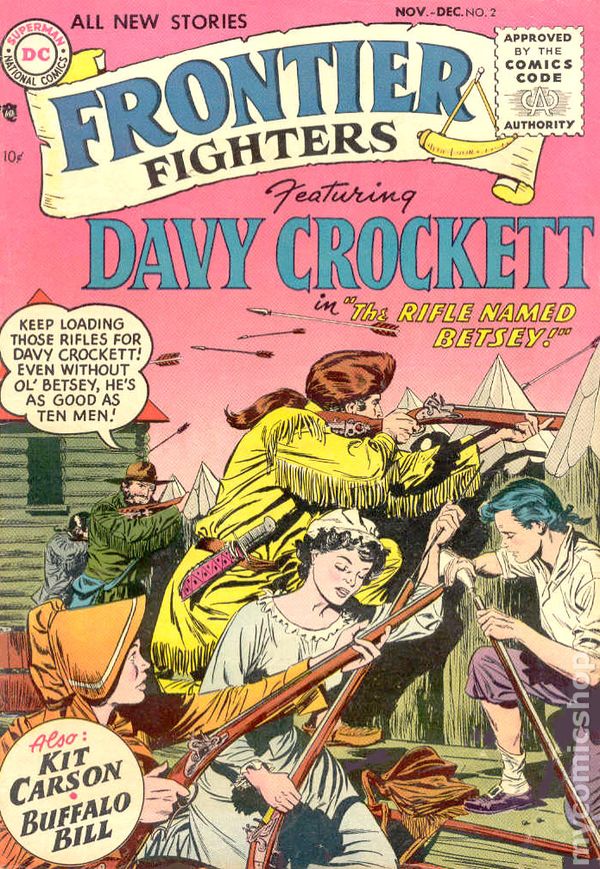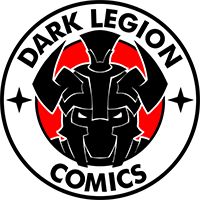The Sons of Jason – The Explorer Heroes

Today, we’ll be examining a heroic type that has been quietly banned in America. The Explorer hero.
There was a huge boom in Frontiersman fiction in the America of the 1950s. Davy Crockett, Daniel Boone, and Jim Bowie were suddenly back in the limelight as well as a host of fictional heroes from the Old West. When Walt Disney opened Disneyland it would have been unthinkable if one of the gates hadn’t been Frontierland (Tall tales and true from America’s legendary past). They were incredibly popular in comic books from that period as well.

There were also new explorer heroes, Astronauts were rock stars. Science fiction heroes of that period were almost all explorers. Gene Roddenberry sold Star Trek by lying about it being Wagon Train to the Stars. John Kennedy landed a solid rhetorical punch with his New Frontier speech. The constant refrain was that America is the Nation of Frontiersman.
Where did the Explorer Hero come from in the first place? Why did he resonate so strongly in Fifties and early Sixties America?* And why has he been completely banished today?
The Frontiersman Hero is not uniquely American but our attitude towards him is. In the 1800s citizens of the United States lived on a continent where a big chunk of the landmass was a great big scary Unknown. I know people understand it intellectually, but most people can’t get how that made people feel. Once you had crossed the Cumberland Gap and were living on the western side of a nice tall and very protective, natural border of a mountain range, you were living with only a river (admittedly a horking great big one), standing between you and the unknown.
The unknown is the realm of Chaos, the place where Law does not exist. There is nothing to defend your family, your property, or your livelihood in the realm of Chaos, nothing but you. The flip side is that there would be no one to judge your own actions in the realm of Chaos because it is a place of All against All. Where there is no law and no order, there is opportunity. If you are in a place where everything is a matter of chance, then chance may favor you, and perhaps greatly. But, easy gains are easily lost in the state of Chaos because there is nothing to protect your wealth.
Naturally, men want to make their fortunes in the realm of Chaos and then return to the lands of Law where their gains will be protected.
But who determines where the boundary is?
The Explorer Hero.
The American frontiersman is a good example of this archetype of being a man with one foot in two worlds. Take Hawkeye from Last of the Mohicans. He was raised by Delaware Native Americans but as he repeatedly says, “I am a man with no cross,” meaning, I am not a half-breed, I’m a white man living in this world. The American frontiersman freely interacts with both the White Man and the Indian, he is accepted by both and knows the ways of both but he never quite fits in with either one.
Back when America was allowed to have “real-life heroes,” the more questionable events in the lives of Boone, Crockett, and especially Bowie were quietly sanded away in primary school history books. Not so much denied as never brought up. Stuff like that was for college courses where you were expected to challenge your preconceived notions (God, I miss America). But for the masses, heroes were allowed to stay pure. The Frontiersmen were a roughhewn subset of the Aspirational Hero.
Since the Explorer hero delineates the boundary between Law and Chaos, he is a source of security in times of insecurity. Which the 1950s most definitely were.
Everybody thinks the 1950s were a time of incredible stability and prosperity for America. And they were, but you have to take into consideration what the previous forty years had been like. A gargantuan war in Europe, followed by a decade of out-of-control behavior where anyone who had a beer was a lawbreaker, (meaning everyone was a lawbreaker). This was followed in turn by ten years of complete economic collapse and famine, with a new and global war batting cleanup. Of course, everyone was insecure. How could they not be?
The really worrying thing for people in the Fifties was that while everything was calm at the moment there were worrying rumbles beneath the surface like the first warning tremors the people of Pompeii felt coming from Vesuvius. There was something coming, they could feel it and they didn’t know what it would be.
Consequently, the heroes that had always held chaos at bay provided a great deal of comfort for people that were feeling secretly terrified about things they couldn’t control. Besides, the story of how the West was won was the story of the triumph of Law over Chaos. America had done it once, surely, we could do it again, right? Right?
That answers where the Explorer hero came from, and why he appealed to 1950s America.
My last question was, why has he been banished?
Unfallen Darklings: Do you really have to ask, oh Dark Herald?
Not really.
Okay, I’m done here.
This post would not have been possible without the invaluable resource that is Professor Geek’s podcast. The Dark Herald Recommends with Enthusiasm.
*(The period between 1947 to 1965)

